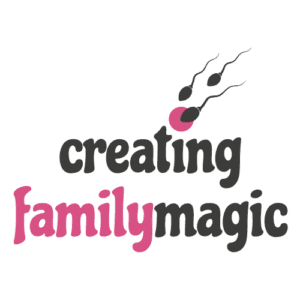Breaking Taboos: From Hormone Therapy to Genetic Editing

Navigating the maze of fertility treatments can be like solving a Rubik’s cube blindfolded. But guess what? There’s a light at the end of the tunnel, and it’s not just a train—it’s the hope of starting or expanding your family, even if you’re flying solo or in a same-sex relationship. Let’s dive into the fascinating world of assisted reproduction, where science and desire collide.
A Peek into the Numbers
Did you know that 20% of the Swiss population faces infertility issues? It’s a staggering number, but there’s hope. Thanks to treatments like hormone therapy (with 9% being the most common), artificial insemination 5%), and in-vitro fertilization (IVF) (4%), many are able to turn the tide. Surprisingly, sperm donation is the least utilized method (1%). And let’s not forget the unsung heroes—the egg donors, embryo freezers, and even the controversial yet fascinating world of gene editing.
CHARLS: Shedding Light on Fertility Perceptions
Enter CHARLS, the Swiss Assisted Reproduction Longitudinal Study. Initiated in 2023, it offers invaluable insights into assisted reproduction. Conducted by Professor Jörg Rössel’s team at the University of Zurich, this study surveyed 5283 Swiss individuals, providing a comprehensive understanding of their knowledge, usage, and moral perceptions regarding assisted reproductive techniques. From hormone therapy to embryo freezing, no stone is left unturned. It’s like the Swiss Army knife of fertility research, revealing insights into usage, knowledge, and moral perceptions surrounding assisted reproduction technologies.
The Moral Dilemma: What’s Acceptable?
Here’s where it gets juicy. While some techniques like artificial insemination are widely accepted (we’re talking a 72% approval rating!), others like pre-implantation genetic diagnosis (PGT-A) stir up controversy, despite 44% supporting its legalization.
Egg freezing, primarily used for medical reasons or personal choice, garners mixed reactions. While 57% find it morally acceptable, 40% question its legal status, highlighting societal divisions on reproductive autonomy.
But guess what? Despite the ethical debates, there’s a glimmer of acceptance even in the most controversial corners.
Surrogacy: A Legal Conundrum
Surrogate motherhood, prohibited in Switzerland, sparks debate on ethics and legality. Although only 6 individuals in the CHARLS study reported using surrogacy abroad, 40% were familiar with the concept, underscoring its prevalence in public discourse.
Genetic Editing: The Ultimate Frontier
Despite its potential to eradicate hereditary diseases, genetic editing faces staunch opposition. While 20% express support, 67% oppose its legalization, reflecting concerns over ethical implications and long-term genetic consequences.
Looking Forward: Legal and Social Changes
The winds of change are blowing. Switzerland may be conservative in some aspects, but attitudes towards fertility treatments are evolving. As more people open up to the idea of assisted reproduction, who knows? Maybe one day, single women and same-sex couples will find more inclusive laws right in their backyard.
Key Takeaways
- Assisted Reproduction Utilization: Hormone therapy is most common, followed by artificial insemination and in-vitro fertilization.
- Moral Perceptions: While some techniques enjoy widespread acceptance, others, like genetic editing, provoke skepticism.
- Legal Complexities: Surrogacy and egg freezing raise legal and ethical dilemmas, mirroring shifting societal attitudes towards reproductive rights.
Navigating Parenthood in Switzerland
So there you have it. Fertility treatments aren’t just about making babies—they’re about breaking barriers, challenging norms, and rewriting the script of parenthood. As attitudes towards assisted reproduction evolve, it’s crucial to recognize the diverse perspectives shaping these discussions. By understanding the nuances of fertility treatments and their societal implications, individuals can make informed decisions on their journey towards parenthood.
